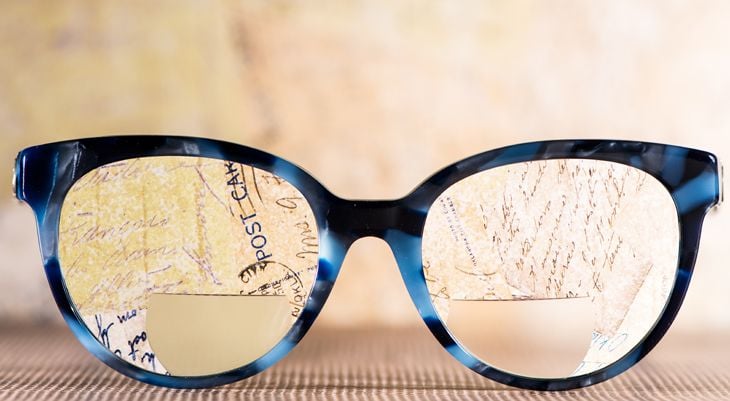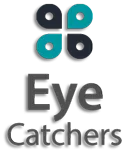
If you find yourself struggling to see both at far distances and nearby reading materials, then it may be time to consider bifocals. Your eye care provider and the trained optometry staff will work with you to determine the best way to meet your needs while helping you to look and feel your best.
What are bifocal eyeglasses and multifocal eyeglasses?
These eyeglasses combine two or more prescriptions into one pair of glasses to correct vision problems at different distances. Most commonly, bifocals are recommended so the wearer does not have to switch between separate eye glasses for distance viewing and for reading.
How are bifocal eyeglasses made?
Traditional bifocal lenses are constructed by molding the reading segment into the primary lens, which is used for distance viewing. The resulting lens contains a visible line where the two lens prescriptions meet.
What are progressive bifocal lenses?
Progressive bifocal lenses transition gradually from the reading lens to the distance prescription to eliminate the horizontal line that is visible in traditional bifocals.
How can I put on bifocal eyeglasses without the line getting in the way?
Try putting the glasses on, then looking through the upper segment for a moment to focus for distance. Next, without moving your head at all, lower your eyes to look through the bottom segment; hold this article or a book 18 inches away from your face and downwards by a 30-degree angle, and read through the bottom portion of the lens. The more you repeat this procedure, the more easily your eyes and brain will adapt to the new reading technique.
How long will it take to get used to bifocals?
As you adjust to bifocal or multifocal eyeglasses, you will need to learn to tilt your head or move only your eyes in order to bring the appropriate lens into the center of your visual field. For most wearers, it takes about 3 weeks to develop and use these new habits naturally. However, most people find the convenience and clear vision well worth the effort.
